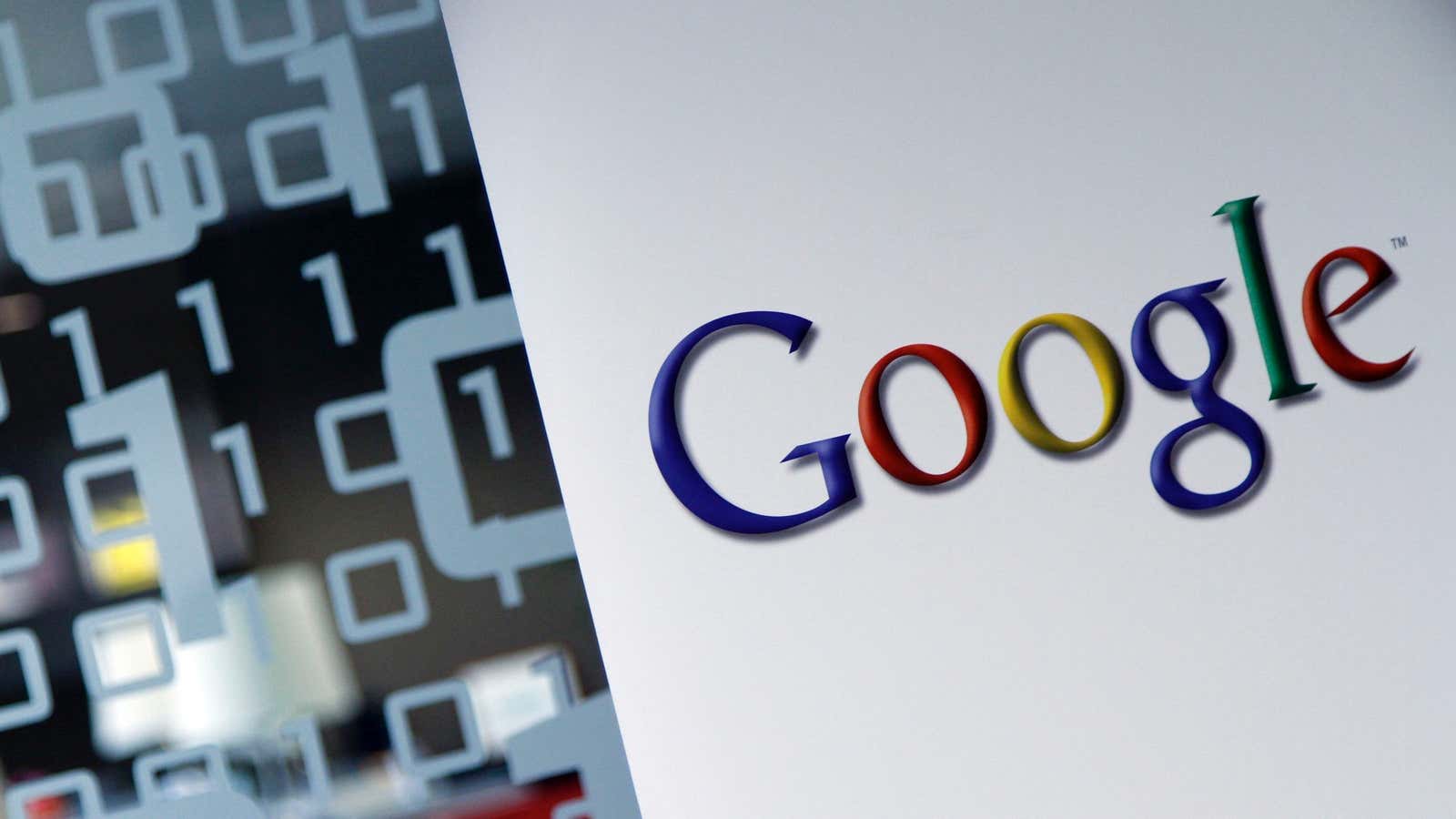Calling all down-on-their-luck inventors or struggling businesses: Google will now let you apply to sell your patents to the company. In a blog post this morning, the company announced that it is setting up an experimental program to gauge interest in Google becoming a patent marketplace, as well as to fight the current scourge of intellectual property—patent trolls who do not manufacture products but hold patents in order to extract payments from those who they claim have infringed upon them.
Google’s plan to beat the trolls is to make the patent selling process faster and easier, giving patent holders an easy alternative to the open market, where trolls might snap up their ideas. Patent holders will only be able to submit a patent between May 8 and 22 this year, and Google plans to let holders know by June 26 whether the company is interested in buying their patents.
Kurt Brasch, a patent licensing manager at Google, told Quartz that this “relatively quick solution” should be an improvement for patent holders, given the amount of red tape that exists in the current marketplace. Patent holders also know that they’re selling to Google.
Google already has a sizable patent portfolio—the company has previously purchased other firms and captured their patent libraries. Of course, many of those patents will never turn into actual products, but the company has promised in the past that it will not become a troll itself, and that it will only use its patents defensively, suing only those who have sued the company first. (That said, who knows what “don’t be evil” means to Google anymore.)
This program is a way to test the waters for a Google-run patent marketplace.”Think of it like a 20 percent project for Google’s patent lawyers,” Allen Lo, Deputy General Counsel for Patents, said in today’s announcement, referencing the passion projects Google employees used to be encouraged to explore (paywall).
Patent holders who sell their inventions to Google will be able to license the patent back from the company so they can continue to produce their inventions. While Brasch said there’s likely to be interest from inventors, he admitted he’s unsure how popular the program will be: “I honestly can’t tell you what’s going to come.”
Google hasn’t set a limit on how much it will spend on patents, but if this experiment proves successful, Google will have found another avenue for building the future, aside from its own moon shots: buying other people’s ideas.
